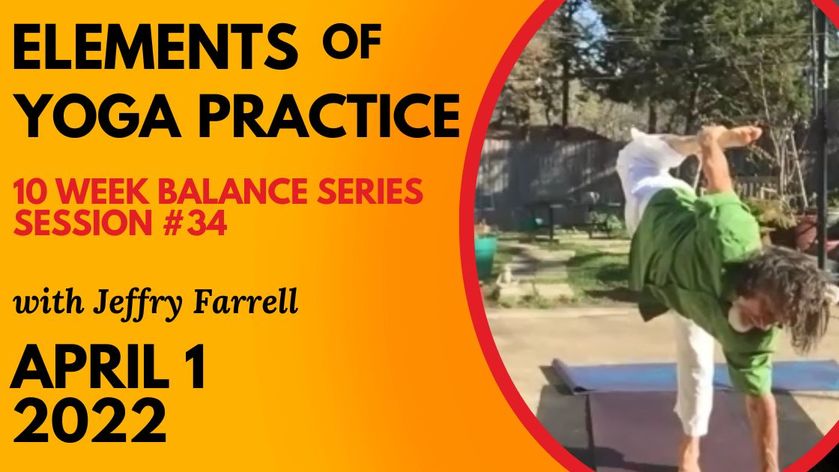It's really a video not an article. . . . And it is the captured video of one Salute sequence originating with one side.

A framework for yoga practices can be simplified by the guideposts of Shtira, Sankalpa, Sukha, and Dukha — Sanskrit terms I’ve mentioned in various videos over the years.
Today, let’s look at the word and the experience of Dukha which Kumar said is an “honest teacher.” With a good attitude his comment is both funny and stern. Yet while bound in Dukha, one might be inclined to say, “fukha dukha” because the word “dukha” signifies a network of meaning centered on pain. Yes, pain is an honest teacher. Dukha is pain, resistance, stress, suffering, dis-ease, the difficult, the unpleasant, the miserable.
Nerd Warning
According to the University of Indiana linguistics scholar Christopher Beckwith, the origin of “du-“ in the ancient Aryan language meant “bad, difficult.” And, to simplify the changes language undergoes over time, the original root verb form “stha” which meant “to stand,” became phonetically changed to “kha,” which also meant “ether, space, sky, empty, hole.”
Thus, the ancient term “dustha” which meant “an uneasy stand, imbalanced, unsettled” came to be spoken as “dukha” with associated meanings. One of those meanings referred specifically to the “bad axle hole” of an ox cart. Dukha meant real problems and potential danger for the ox cart driver, his passengers and load.
Dukha becomes a valuable reference for us today as it regards both an ability to maintain a yogic practice, and an ability to recognize and recover from “bad axle holes” of life we might know as illness, injury, or setback.
Yoga Practice is Personal
So, your practice revolves around your life, your dispositions, talents, desires, strengths and weaknesses. Mine, too, of course, so we come to the meat of my current interest — recovering from “rolling” on a ju-jitsu mat.
Please check out these photos and look at Part Two.
This is a video of the left side initiating movement in a Salute to the Sun sequence.
Breath is first. It activates stability and sensation, strength, balance, and an active but receptive mind. Then, move.
Congratulations! You are about to complete the first chapter and the first series of one minute videos.
There are several positions with inter-laced fingers. Do this one first and breathe nine deep breaths. If you cannot do this, nevermind. And accept the completion of the first chapter! You are prepared to go on to Chapter II which is the first sequence for Breath.
We will come back to Laced Fingers again in a subsequent chapter.
I will add specific series for laced fingers witih arm movement in future uploads. Every position has many variations. Every position begins with breath, stability, and wholeness. In every position we set our intention and move, guided by breath. The work is an effortless effort that confronts pain and learns.
This video completes the initial series of nine short videos to awaken the upper body.
IF YOU STARTED HERE GO BACK LIKE SHOOTS AND LADDERS TO THE FIRST VIDEO —
I. Standing A.) Arms, Shoulders, Neck 1.) Open/close the fist....
From a standing upright position, maintain stable and unmoving shoulders as best you can.
Isolate the head’s movement with a nod forward and back. Hinge the head forward and back. Inhale back, exhale forward. Make at least three reps of nodding “yes.”
Return to center. Turn the whole head right and then left. Turn the chin and forehead equally. Turn your eyes deeply back, too. First breath is to exhale over your shoulder. Make at least three reps of “no.”
Return to center. Tilt the head to one side. Pretend you could lift the ear up into the sky. Stay there and breathe. Feel the dilation in that side fo the neck. Feel the compression on the opposite side. Take three breaths on each side. Make three reps of “maybe.”
Return to center and make a circle with the top of your head. Turn the head three times to the right, then reverse three times. Every circle is a breath.
HOW TO USE THIS VIDEO SERIES:
Please watch the video then make the movement. Make at ...
If you have any questions about payments, text Donna at 214-663-3991.
~Group class rate if you have joined the Locals online group at the FREE level: $30. Click here to pay: https://buy.stripe.com/cNi28qemN5q0bDldWzf3a0j
~Group class rate for Locals supporters at the $5-$14/month level: $20
Click here to pay: https://buy.stripe.com/8wM16A10Rg249fW8wD
~Group class rate for Locals supporters at the $15-$59/month level: $15
Click here to pay: https://buy.stripe.com/cN25mQ7pf7vy2Ry6ow
~Group class rate for Locals supporters at $60 and above: FREE
I like this guy’s work online. He’s been around for a while and speaks so plainly about the body’s maps, functions, that you’re sure to like him, too.


















